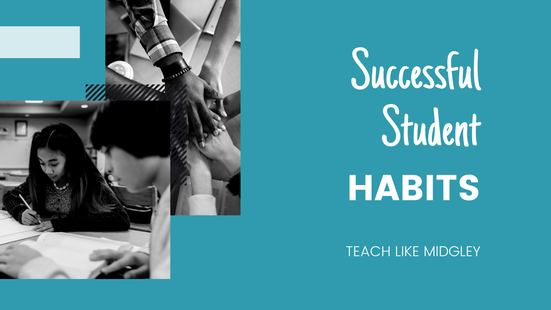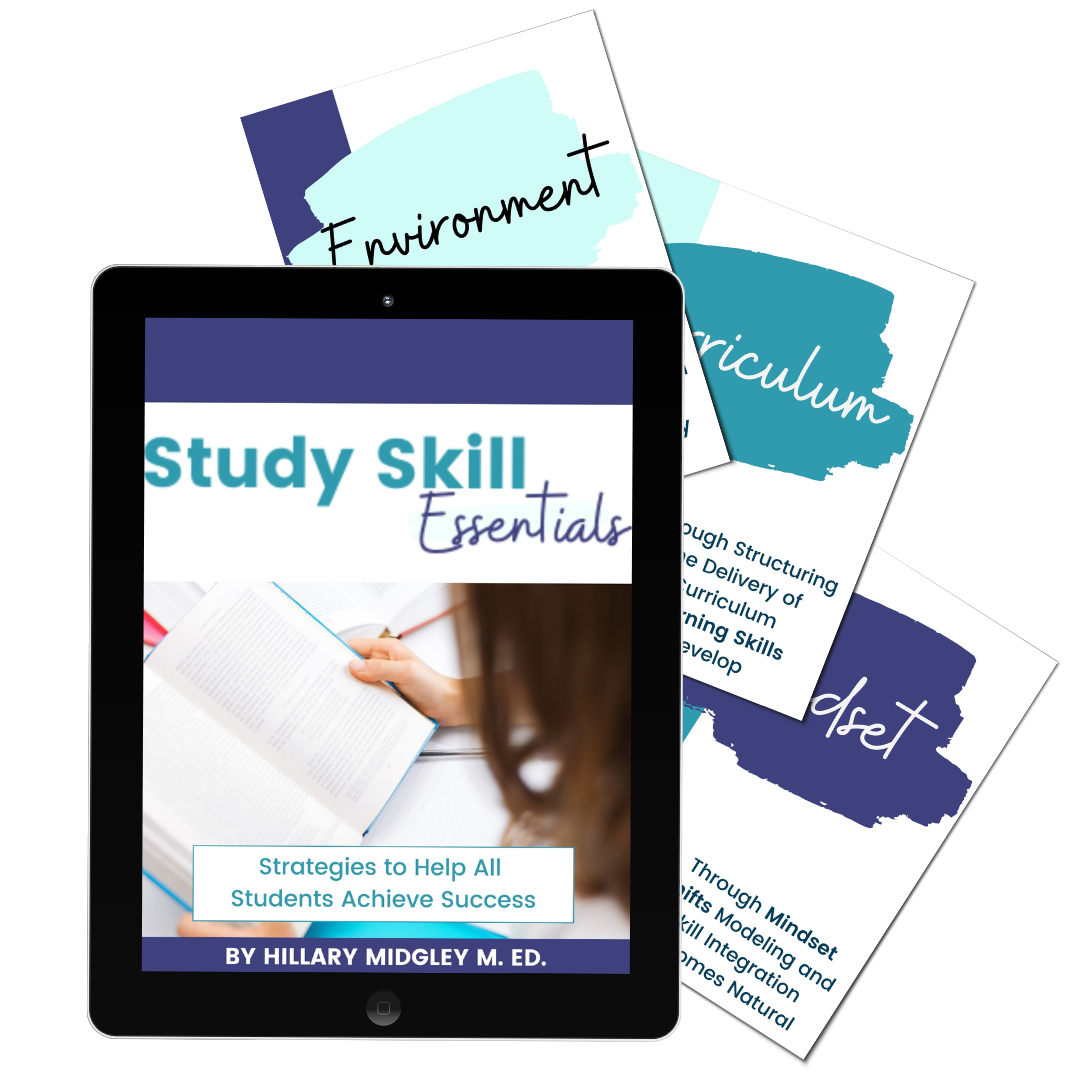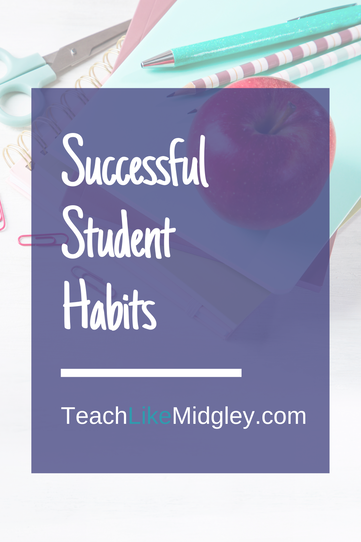Successful Student Habits
Successful student habits are achievable by anyone who puts their mind to it. Just as productive habits are beneficial to adults, good habits can make a positive impact on a student’s learning experience.
The Merriam-Webster dictionary defines a habit as a settled tendency or usual manner of behavior
The habits you have as a teacher will impact the habits your students create in your classroom.
A teacher has control over the usual manner of behavior that occurs within their classroom, whether they do so intentionally or not.
A parent has control over the usual manner of behavior that occurs within their home, whether they do so intentionally or not.
How to Develop Student Work Habits
Habits require work to establish. You can’t simply say “Write your assignment in your planner” during the first week of school, and expect to not have to say it again the rest of the year.
Teachers help students create good learning habits by modeling those habits and giving positive reminders regularly.
Parents can help students create good learning habits by modeling, helping, and providing positive reinforcement.
There is a drastic difference between simply telling or even hounding a student to take an action and giving a positive, supportive reminder. You will find the later to be much more effective in achieving success.
Teachers help students create good learning habits by modeling those habits and giving positive reminders regularly.
Parents can help students create good learning habits by modeling, helping, and providing positive reinforcement.
There is a drastic difference between simply telling or even hounding a student to take an action and giving a positive, supportive reminder. You will find the later to be much more effective in achieving success.
What Successful Student Habits Look Like
Participation
Students create good habits of participation by working cooperatively with others and doing their fair share of the work. Students need a friendly, helpful, courteous, and good humored attitude.
Work
Students create good habits of work by following directions and asking questions when they don’t understand. Students should attempt each part of the task, assignment, or test.
Discipline
Students create good habits of discipline by maintaining focus, paying attention, and persisting in their efforts. Students handle mistakes, setbacks, anger, and frustration in a constructive manner.
Communication
Students create good habits of communication by sharing their thoughts and ideas in small and large groups. Students use positive, nonaggressive language to express opinions and ask for help.
Mind
Students create good habits of mind by setting academic goals and reflecting and monitoring their progress. Students are curious and ask questions to further deeper understanding of topics of study.
Students create good habits of participation by working cooperatively with others and doing their fair share of the work. Students need a friendly, helpful, courteous, and good humored attitude.
Work
Students create good habits of work by following directions and asking questions when they don’t understand. Students should attempt each part of the task, assignment, or test.
Discipline
Students create good habits of discipline by maintaining focus, paying attention, and persisting in their efforts. Students handle mistakes, setbacks, anger, and frustration in a constructive manner.
Communication
Students create good habits of communication by sharing their thoughts and ideas in small and large groups. Students use positive, nonaggressive language to express opinions and ask for help.
Mind
Students create good habits of mind by setting academic goals and reflecting and monitoring their progress. Students are curious and ask questions to further deeper understanding of topics of study.
Successful Student Habits
All of these habits are achievable by all students. The most efficient way to help students achieve these habits is by having them modeled by the adults in their lives. Most importantly, modeled by their teachers and parents.
If you are looking to fix those work habits in your students, first you must look at your own habits. What message are you sending your student through your own actions? Once you can begin modeling them for your students on a daily basis, you will find the work habits of your students begin to improve.
If you are looking to fix those work habits in your students, first you must look at your own habits. What message are you sending your student through your own actions? Once you can begin modeling them for your students on a daily basis, you will find the work habits of your students begin to improve.
"My students have been struggling with study skills and I purchased this product to help improve my knowledge about how to teach my students study skills. This was a great purchase. It helped me to see small changes that I could add to my teaching routines and lessons to help my students with study skills in my class and prepare them for future grades/classes." - Amy B.
⭐⭐⭐⭐⭐ Extremely Satisfied |
You May Also Like...
+ 6 Effective Goal Setting Strategies for Middle Schoolers
+ 9 Strategies to Help Students Take Better Class Notes
+ 7 Dynamite Test Taking Strategies for Middle Schoolers
+ 7 Effective Ways to Teach Vocabulary in Middle School
+ 9 Strategies to Help Students Take Better Class Notes
+ 7 Dynamite Test Taking Strategies for Middle Schoolers
+ 7 Effective Ways to Teach Vocabulary in Middle School
This post was originally written by Hillary Midgley and published at Study Skills Unleashed
Let's Connect...

Welcome! I'm Hillary Midgley, a veteran 6th grade teacher.
I create educational materials and develop curriculum for other teachers. I specialize in teaching students how to learn through my Study Skills Curriculum. I have established fundamental classroom systems and structures for teachers to help them streamline their classroom. And my passion is teaching ancient history through engaging activities with foundations in academic skills. Here you will find resources on all of these topics and more. Learn more about me here.
|








